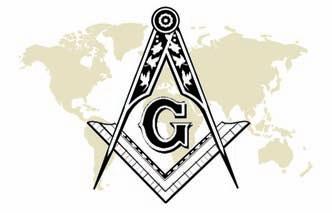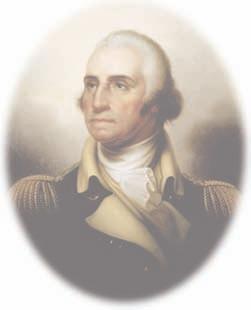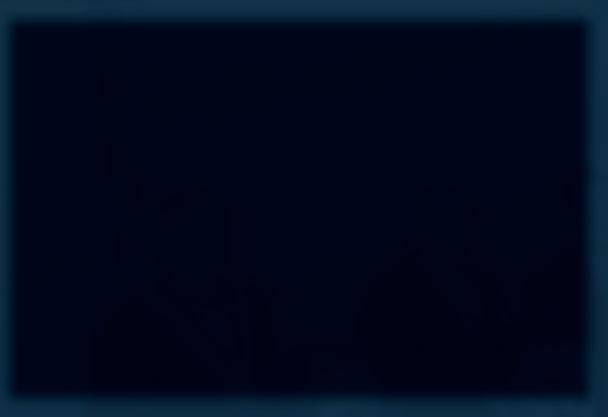
8 minute read
A Masonic Memorial to a Virtuous Man
Mark A. Tabbert ,
Past Master
This year we celebrate George Washington’s 275th birthday. It’s also the 75th anniversary of the George Washington Masonic National Memorial. Yet 2007 is not simply a convenient reason to celebrate a birthday, remember Washington’s great deeds or visit the Memorial. Rather it is a time to contemplate the Memorial as a symbol of Freemasons’ reverence of Washington and to reexamine its purpose. Since the forming of the Memorial Association in 1910, its mission has changed. Originally organized to create a fireproof building and proper exhibitions gallery for Washington relics owned by Alexandria-Washington Lodge No. 22, the Association soon determined to erect a grand memorial worthy of Washington on nearby Shooters Hill. With ambitious goals and magnificent designs in hand, the Association began fundraising and promotional campaigns. Grand Masters and Association officers spoke and wrote in support of the Memorial. The most forceful voice was Charles H. Callahan, Grand Master of Virginia. He argued that a Memorial was needed not simply to display relics, but to end any doubt that Washington and other patriots were proud Freemasons. More important, a Memorial would demonstrate the strength of modern day Masonry, the beauty of Masonic tenets and the loyalty of Freemasons to “the ideals of Washington and his Masonic compatriots.” The relationship between Washington the man and the Masonic Memorial continued to evolve. At the 1932 Memorial dedication ceremony, Episcopal Bishop and Brother Mason James E. Freeman of the District of Columbia forcefully proclaimed:
“We are met here today not so much to think of
Washington the patriot, the soldier, the commanderin-chief and ultimately the president of the republic, as of Washington the high exemplar of those splendid ideals for which this ancient Order stands.”
Immediately following Bishop Freeman’s remarks, Past Grand Master Melvin M. Johnson of Massachusetts declared:
“George Washington was not great because he was a brother of the Craft. He was great because his natural abilities, willed into action, were guided and inspired by the fundamental principles which Freemasonry inculcates, and which so saturated every fiber of his being that he thought them, spoke them, and lived them.” The Masonic National Memorial, therefore, was not dedicated to Washington because he was a Freemason, but because more than any other American he exemplified what every Freemason ought to labor to be: a virtuous man. In 2006, the Memorial Association reaffirmed this with a new vision statement that declares: “. . . to emulate and promote the virtues, character and vision of George Washington, the Man, the Mason and Father of our Country." But what is meant by Washington’s virtue, character and vision? They are the same that every Mason learns when he takes his obligations, receives the lectures and is raised on the Five Points of Fellowship. These virtues were
recognized in Washington at an early age, but were best articulated in the very moments of his retirement. Succeeding as the second president of the United States, John Adams said in his 1797 inaugural address:
“[Washington], by a long course of great actions, regulated by prudence, justice, temperance and fortitude, has merited the gratitude of his fellow citizens, commanded the highest praise of foreign nations and secured immortal glory with prosperity.” expedition against the French and Indians. Thus he was prepared for the crushing victory by the British at Brooklyn Heights and the long deprivations of Valley Forge. Without
lost its courage and the War for Independence. Fortitude is a trait of the warrior; prudence is a farmer’s virtue. For a farmer must “wisely judge and prudentially determine on all things relative to his present, as well as to his future happiness.” Young Washington, like most Washington lived for 67 years and during the last 24, tobacco planters, suffered from debt owed to London more than a third of his life, he was the foremost man in merchants. Washington wisely diversified his crops, bred America and on whom the fate of the nation depended. new livestock and developed new industries at Mount Yet the virtues WashingVernon, so by the Revoton lived by were lution, he was one of the learned when he was a few solvent Virginia young man, before he planters. As the first entered history’s stage, president he underand even before he stood his actions would became a Freemason, determine the nation’s at the age of 20. “future happiness.” His A brief survey of Washington’s life reveals moments when he learned those virtues and more importantly when he exemplified them by “squaring his actions by eight years in office established a deliberative and constructive executive, subordinate to the Constitution, yet equal to the legislative and judicial branches. the square of virtue.” “Justice,” according to Born into Virginia planter society, Washington understood temperance in youth. While many of his class fell into gambling, drinking, licentiousness and debt, Washington memorized Seneca’s Morals. Through a steady practice of the 110 “Rules of Civility” Washington learned to avoid common vices. Many years later, as Commander-in-Chief, he was immune to far greater and insidious vices. He never left his army cold and hungry for the pleasures of Mount Vernon. He never squandered his men for military glory and he was never seduced by a king’s crown or a dictator’s power. the Masonic lecture, “in a great measure constitutes the real good man.” As a young man Washington believed he warranted a king’s military commission for his service in the French and Indian wars, but he was denied that honor. General Washington, however, always rendered every man his just due and awarded his men with promotion or the Purple Heart for courage. As President he supported benevolent and educational institutions as he shunned divisive sects and political parties. In life Washington aided those less fortunate, respected his equals and served his superiors. WASHINGTON ON HORSEBACK. PHOTOGRAPHY BY ARTHUR W. PIERSON Young Washington learned physical fortitude surveying the Virginia country. He also learned military fortitude during the disasters of Fort Necessity and Gen. Braddock’s Washington’s last public act summarizes a life dedicated to virtue. At the beginning of John Adam’s presidential inauguration, he led the procession on stage. At its conclusion, Washington insisted he retire not only after
President Adams, but also after Vice President Jefferson—a small courtesy, but one that demonstrates to all men, in every age, that the highest office is higher than any man who ever occupies it and that ultimately every office is subordinate to the law.
Such was Washington’s character, that from almost the day he took his Masonic obligations until his death, he became the same man in private that he was in public. In Masonic terms he remained “a just and up right Mason” and became a true Master Mason. Washington was a “living stone” who is the cornerstone of American civilization. He is the milestone that older civilizations follow into liberty and MASONIC PARADE UP KING STREET FOR DEDICATION OF THE MEMORIAL, 1932 equality. He is Freemasonry’s “perfect ashlar” upon which country is not how many adhere to any particular countless Master Masons gauge their labors in their own creed, but how many accept as their standard the staLodges and in their own communities. bilizing, constructive character of him in whose The George Washington Masonic National Memorial’s memory this Temple shall stand throughout the comtrue purpose was first articulated by Past Grand Master of ing years.” Pennsylvania and President of the Association Louis The challenge Freemasons face this anniversary year is to Watres: ensure we are living today the virtues Brother Washington
“[The Memorial] will eloquently tell the world that exemplified long ago; and in so doing, continuing the
Masons are builders—builders of individual characwork of building a fraternity and a civilization worthy of so ter; and that the vital question of our time and our great a man. ■
Grand Master’s Homecoming
continued from page 13
This list becomes more extensive and much more impressive if one considers the number of their sister lodges in France, Italy, Romania, Peru and Philippines, who have been twinned with our bi-lingual lodges during very impressive ceremonies at Universal Brotherhood Celebrations, thus extending and strengthening the outreach of Universal Freemasonry in our Grand Lodge. The symbol of the Persian rug still stands today. The difference from when I stood on the back porch of MWB Robert’s house and today is that the “threads” represented by these bilingual lodges have become “intertwined” with the threads of our existing lodges forming a unique harmonious pattern to be emulated throughout the world of Freemasonry. Members of other Grand Lodges here and abroad marvel at the universality of our Grand Lodge. Tonight is a night that we proudly celebrate to honor a man who has through his vision and effort set our Grand Lodge on the multi-cultural course of Universal Freemasonry and who, during this chapter in our Grand Lodge, brought to Freemasonry in the District of Columbia over 400 new members representing some almost 10% of our total membership. A wise man once said, if you want to know how spiritual you are, ask yourself the question, “how universal is my consciousness?” Most Worshipful Brother Robert you have expanded our consciousness to include Freemasonry around the world and we thank you MWB Robert for your contribution to Mehr Lodge, our Grand Lodge and to our Craft.
As Grand Master, Most Worshipful Sir, you have been given the leadership role to continue the outreach and success of our Grand Lodge. May God continue to bless your journey and that of Freemasonry! ■






